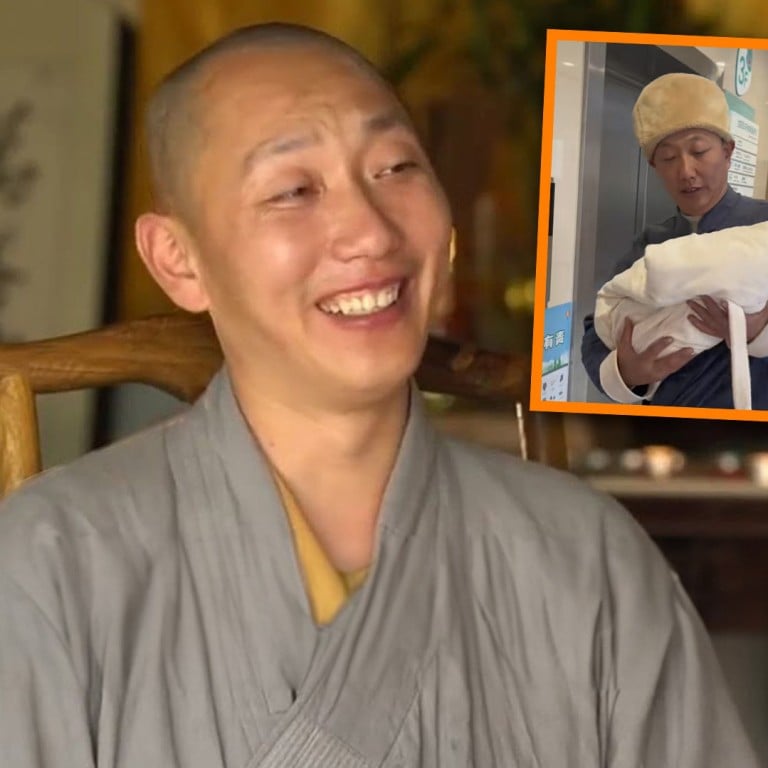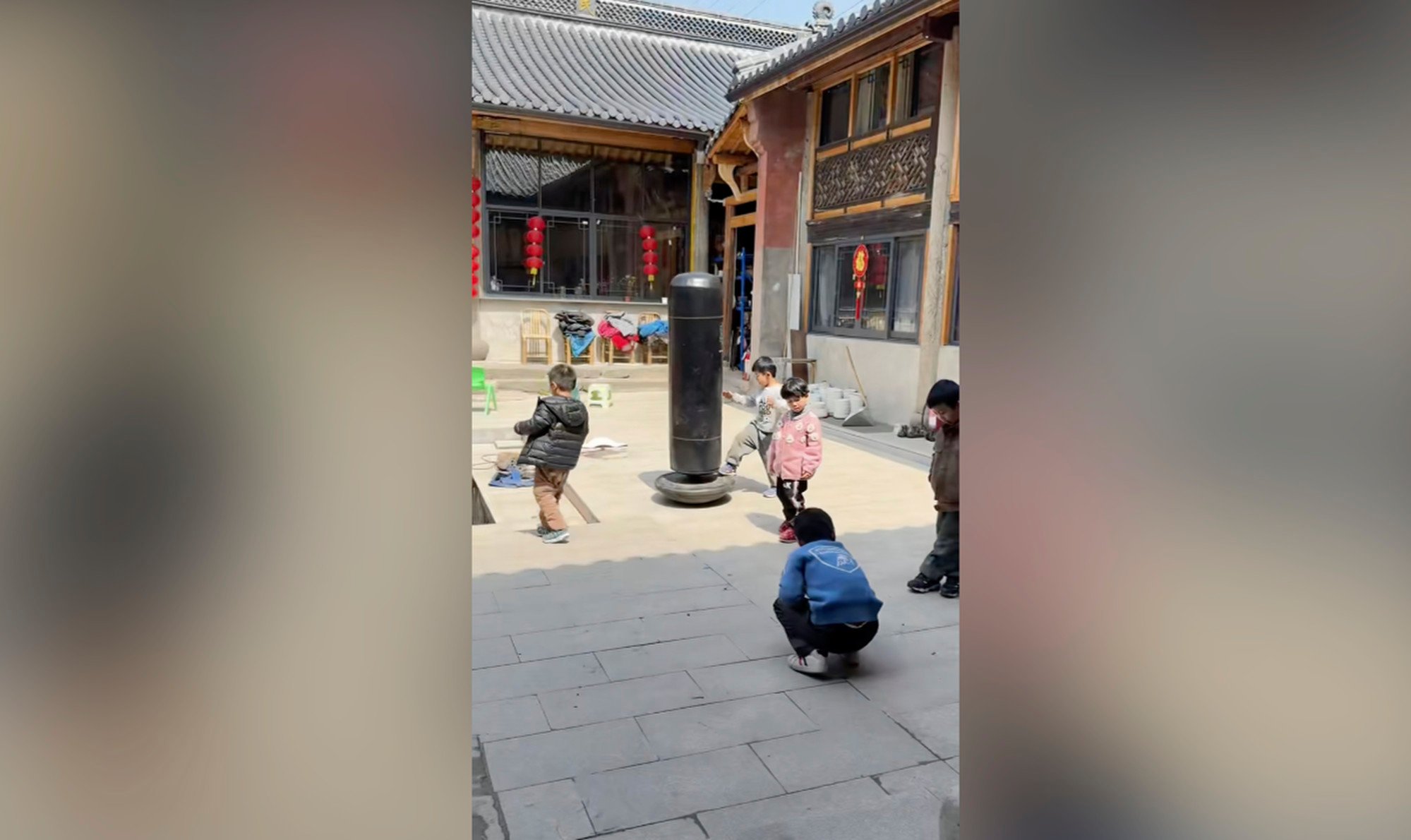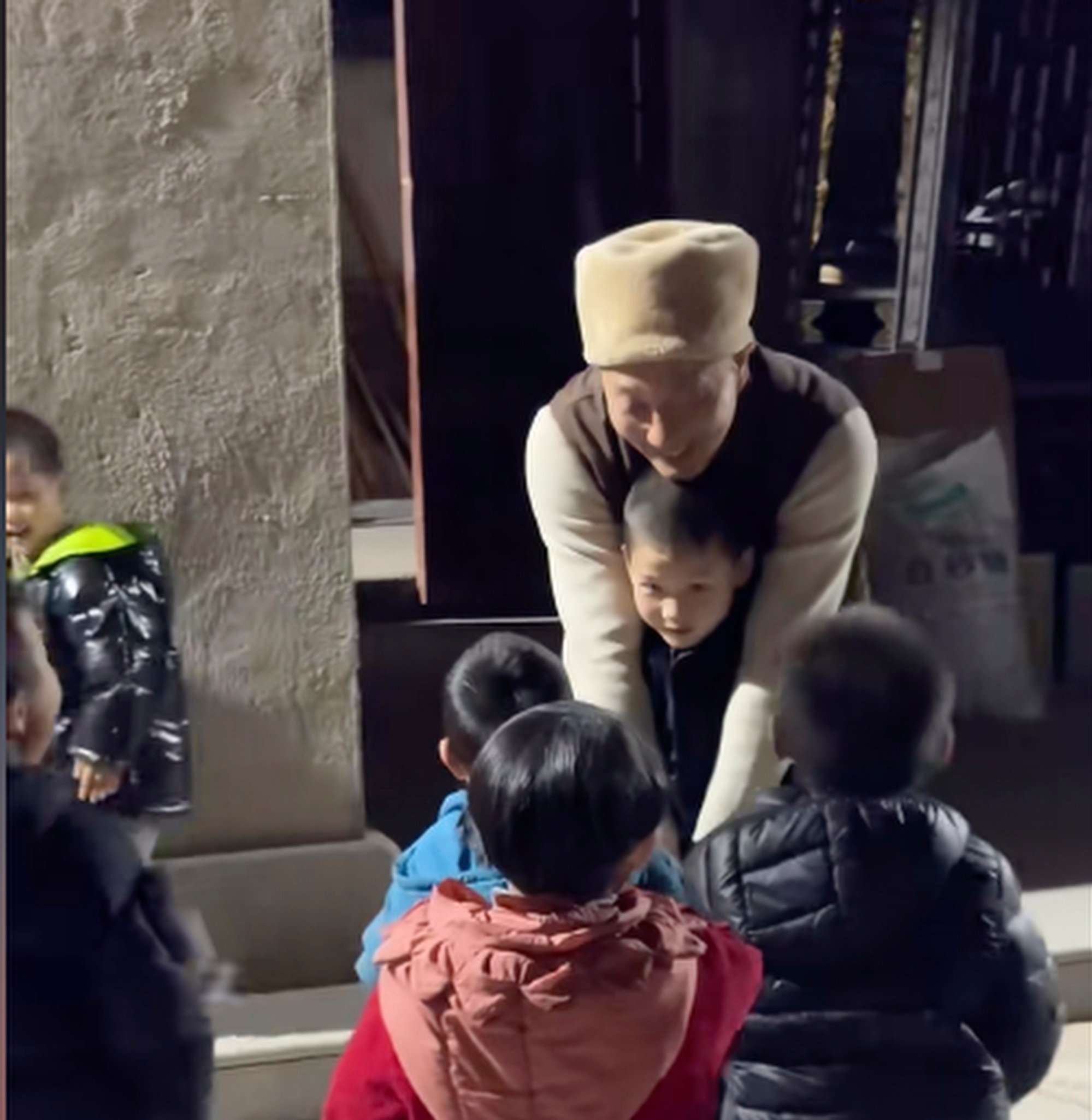
600 children raised by China monk, known as ‘Papa Wu’, who helps desperate single mothers, turns temple into loving home
- Former wealthy businessman offers sanctuary for women shunned by society
- Online critics claim kind man of faith encourages sex and pregnancy outside wedlock
A monk in China has rescued 600 abandoned children over a 12-year period, turning his temple into a sanctuary of love.
Since 2012, Wu Bing, 49, from Jiangsu province in eastern China, also known as Monk Daolu, has been providing shelter and assistance to pregnant women and abandoned children who are unable to be cared for.
The children he adopted used to live in the temple but were relocated to a small house in Zhejiang province, also in eastern China, due to the demolition of the place of worship.
The house, known as “Protective Abode”, accommodates more than 50 children ranging from newborns to 10-year-olds, with Wu being their collective “Papa Wu”.
Their mothers are all single women who accidentally became pregnant and are unable to care for their children.
Wu remembered rescuing a woman who had lost both parents and was seven months pregnant. Her boyfriend vanished after deceiving her out of all her money.

Another was a young girl studying abroad who hurried back to China to give birth after accidentally becoming pregnant, keeping it a secret from everyone.
Over the years, Wu has rescued more than 600 pregnant women and their children.
Before becoming a monk, he was a businessman and made a substantial amount of money.
In 2010, he chose to leave everything behind and adopt a religious life.
“The more money I made, the more disgusted I became with the complexities of business,” said Wu.
On one occasion, a female tourist, feeling guilty about a child she had aborted came to the temple for a memorial service and spoke with Wu.
When asked why she had the abortion, the woman said: “I was too young, my parents disagreed with having the child, and I had nowhere to go. Who else could help me?”
Wu also noticed that 90 per cent of the annual temple visits were from women giving blessings for babies they had terminated.
In 2012, he publicly shared his contact information on mainland social media: “For those who are unable to care for their children, we are willing to provide shelter and assistance,” he wrote in a post.
Many helpless pregnant women contacted Wu, and he would take care of everything from prenatal care to delivery, including fees, signing for surgery and waiting outside the operating room.
If the mother is unable to care for the child after birth, Wu will raise the child until they are 18 years old, free of charge.
The “Protective Abode” differs from an orphanage because the children there are not available for adoption.
If the mother later becomes capable of caring for the child, they can be taken back.
Every day, Wu and his volunteers pick up children from school, tell them stories before bedtime, and make crafts and desserts with them at weekends.
Wu also attends every parent-teacher meeting and monitors each child’s exam results.
He also rescues and releases stray animals.

The costs of running the house are mainly covered by donations, with added income from Wu’s Buddhist activities.
Wu’s team also sells vegetarian food and tea on Douyin and has 480,000 followers.
Papa Wu’s story has sparked a heated discussion on mainland social media.
Some critics believe his actions condone young women getting pregnant out of wedlock.
But Wu countered: “If no one does this rescue work, these women and children will be left in dangerous situations.”
Meanwhile, supporters admire him for his actions.
“True love doesn’t require blood ties. Six hundred children now have a warm home,” said one observer on Douyin.

